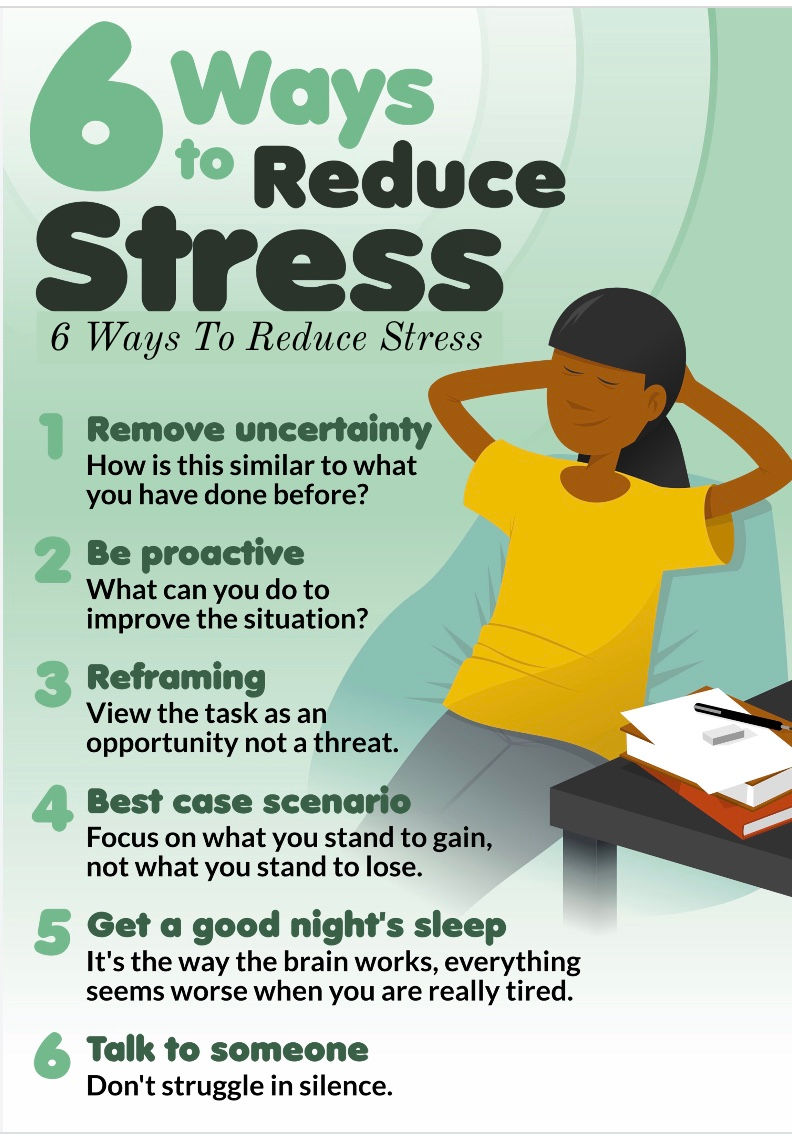6 WAYS TO REDUCE STRESS
- Diana Psychologist

- Oct 11, 2020
- 3 min read

For many student’s revisions time can be very stressful. But new and interesting research suggests that a) some stress is actually a good thing and b) if it does get excessive, there are a range of simple techniques that can help boost emotional control and exam performance.
Research from Yale University suggests that students who view stress as potentially aiding their subsequent performance feel better when in challenging situations and respond more productively. So, what can students do to best help them manage potentially stressful situations?
REMOVE UNCERTAINTY
The Mental Health Foundation suggests that a great way to reduce stress is to try and relate your situation with something you have previously experienced. By familiarising yourself with the situation, you can recycle your previous coping strategies to help you deal with this current problem. A great question to ask yourself is, how is this situation like what I have experienced before? This removes ambiguity, which reduces uncertainty, which in turn boosts confidence.
BE PROACTIVE
Research has found that procrastination is a prime environment for unhelpful thoughts to lead to stress. To best deal with stress, it is better to be proactive rather than reactive, as being proactive reduces the risk of procrastination. By being proactive, we can manage and control our stressful situations by doing things ahead of time. This could be planning your revision schedule before a busy exam period - this is something we talk more about in our blog, ‘6 Ways to Reduce Revision Stress’.
REFRAMING
Treat the task put in-front of you as an opportunity to improve and not as a threat. Reframing isn’t the process of pretending everything is fine when it’s not, it’s about finding a new way of perceiving a tricky situation. It is about focusing on what you stand to gain if it goes well, not what you stand to lose if it goes badly.
This process allows you to implement a growth mindset as it places the importance on learning and improving, instead of worrying about being judged and making mistakes. For more tips on reframing, check out our blog ‘Challenging Unhelpful Beliefs’.
BEST CASE SCENARIO
Researchers at the University of California and the University of Pittsburgh, found that by avoiding the opportunity to challenge yourself leads to less creativity, over-focus on winning and the avoidance of mistakes, and a tendency to become increasingly conservative in your approach to learning. Whereas it is prudent to be aware of worst-case scenario, dwelling on it seems not to be productive.
TALK TO SOMEONE
Don’t struggle in silence. By talking to parents, teachers, coaches, friends and family will help you develop a team around you that can support your development. One of the greatest basketball coaches of all time, Phil Jackson once said that ‘the strength of the team is the individual. The strength of the individual is the team’. We think this is true.
Having access to a supportive network of individuals who can offer you social support has been found to act as a stress buffer and improve coping, as well as improving resilience and individual performance.
GET A GOOD NIGHT’S SLEEP
Students who sleep better have been found to get significantly higher grades (about half a grade difference). When you’re tired, everything seems that little bit worse. It’s important to have a good sleep. Have a look at our blog on how to sleep your way to success for a few easy tips on how to do this.




Comments